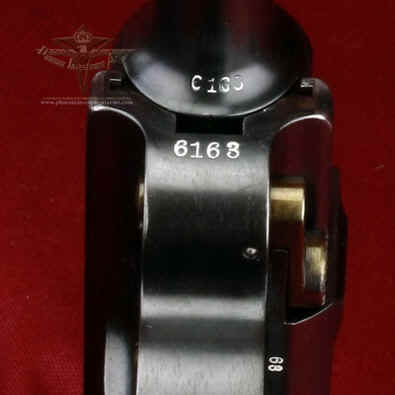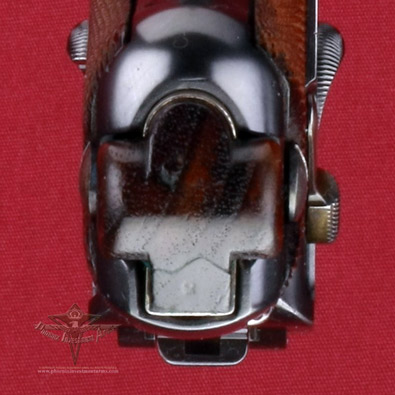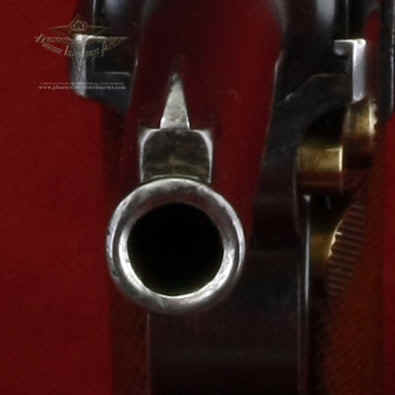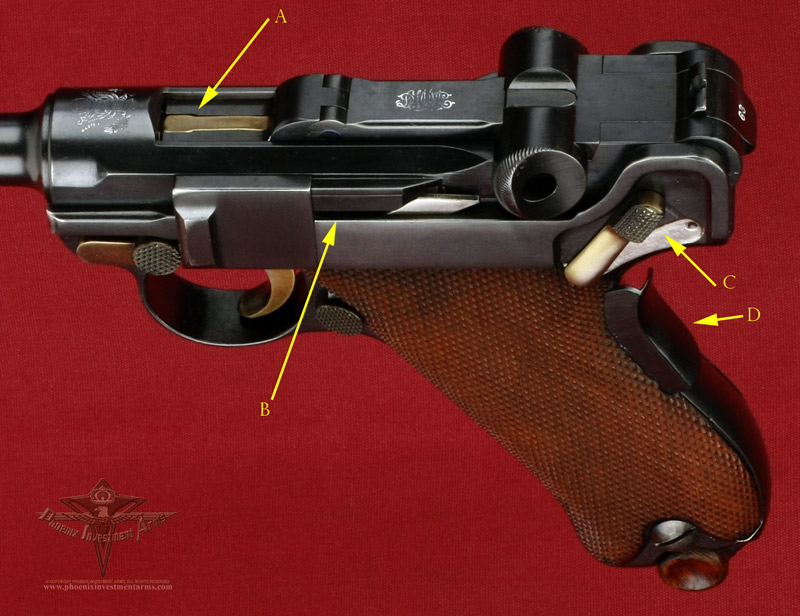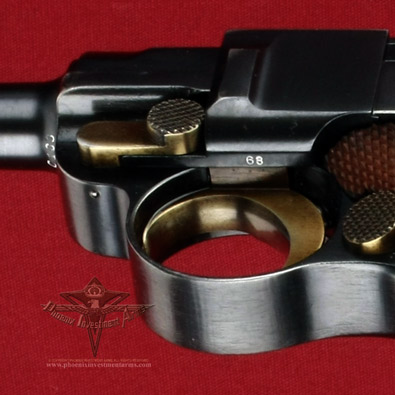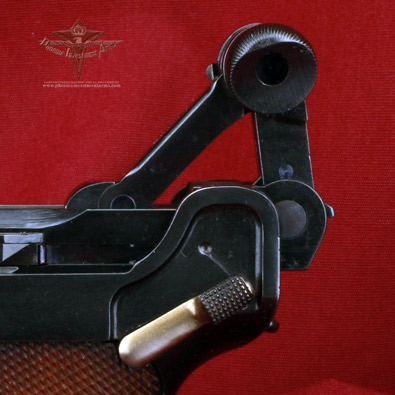|
|
| This is a 1900 Model, 7.65mm (.30 Cal Luger) with the "old model" transitional frame with a Type II thumb safety and is not marked but is polished and the extractor is the leaf type. The Luger has a serial numbered grip squeeze safety. There is an "American Eagle" from the US Great Seal over the Chamber and the DWM (Deutsche Waffen-und Munitionsfabriken AG) on the first toggle link. The serial number falls well into the range of the US Military Test Guns from the trials conducted in 1901 (1342) |
|
|
|
One of the things "known" about Lugers is that international law required guns made for commercial sales must show the country of origin. Usually this was done on the early Lugers by placing "Germany" on the front of the frame under the serial number. This gun does exhibit this 'commercial' designation. It also does not have the "German" import mark required by customs for any weapon entering the US. This is one of the classic Lugers exported by DWM to the United States as a test model. |
|
On March 9, 1901 the United States Board of Ordinance and Fortifications , through the commanding officer, LTC Frank H. Phipps ordered a meeting of the board with Mr. Hans Tauscher, the DWM factory representative at which the Mr. Tauscher procured to Parabellums for preliminary test and evaluation of the Board. On March 18th, 1901 with Mr. Tauscher present the tests began and after several days of testing the expended 2000 rounds and recommended the U.S. Army purchase sufficient Lugers (1000) to hold field testing trials and evaluation. Actual cost was $15,630 or $14.75 per Luger and $.88 per extra magazine (Wow). |


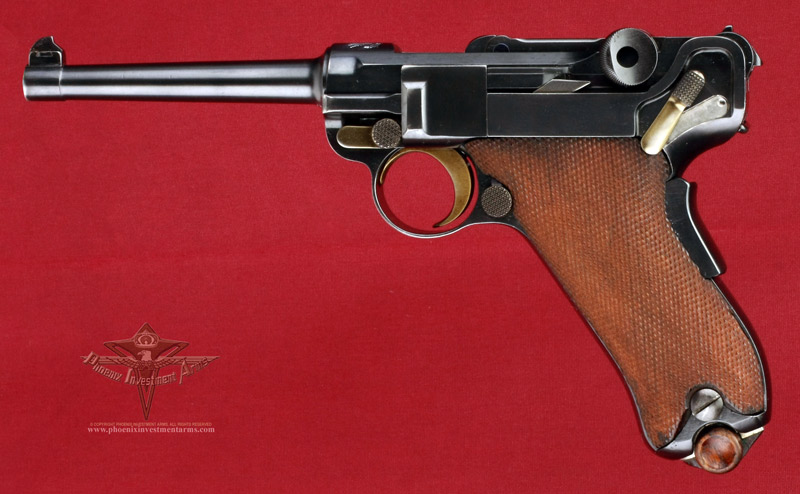




 In
December 1901 the US Army ordered Rock Island Arsenal to produce a
holster and rig for the distribution of the Test Guns to the various
military units. During the US Government
testing in 1901/02 of the 1900 Parabellum the American Eagle was employed as a sales tool and when
the second test began in 1907 with the order for another 1000 pistols from DWM and
1000 holsters from the Rock Island Arsenal they all had the American Eagle.
The acceptance by first the Swiss and then the Americans for their
national symbol on the gun highlights the "contract gun series"
In
December 1901 the US Army ordered Rock Island Arsenal to produce a
holster and rig for the distribution of the Test Guns to the various
military units. During the US Government
testing in 1901/02 of the 1900 Parabellum the American Eagle was employed as a sales tool and when
the second test began in 1907 with the order for another 1000 pistols from DWM and
1000 holsters from the Rock Island Arsenal they all had the American Eagle.
The acceptance by first the Swiss and then the Americans for their
national symbol on the gun highlights the "contract gun series"





